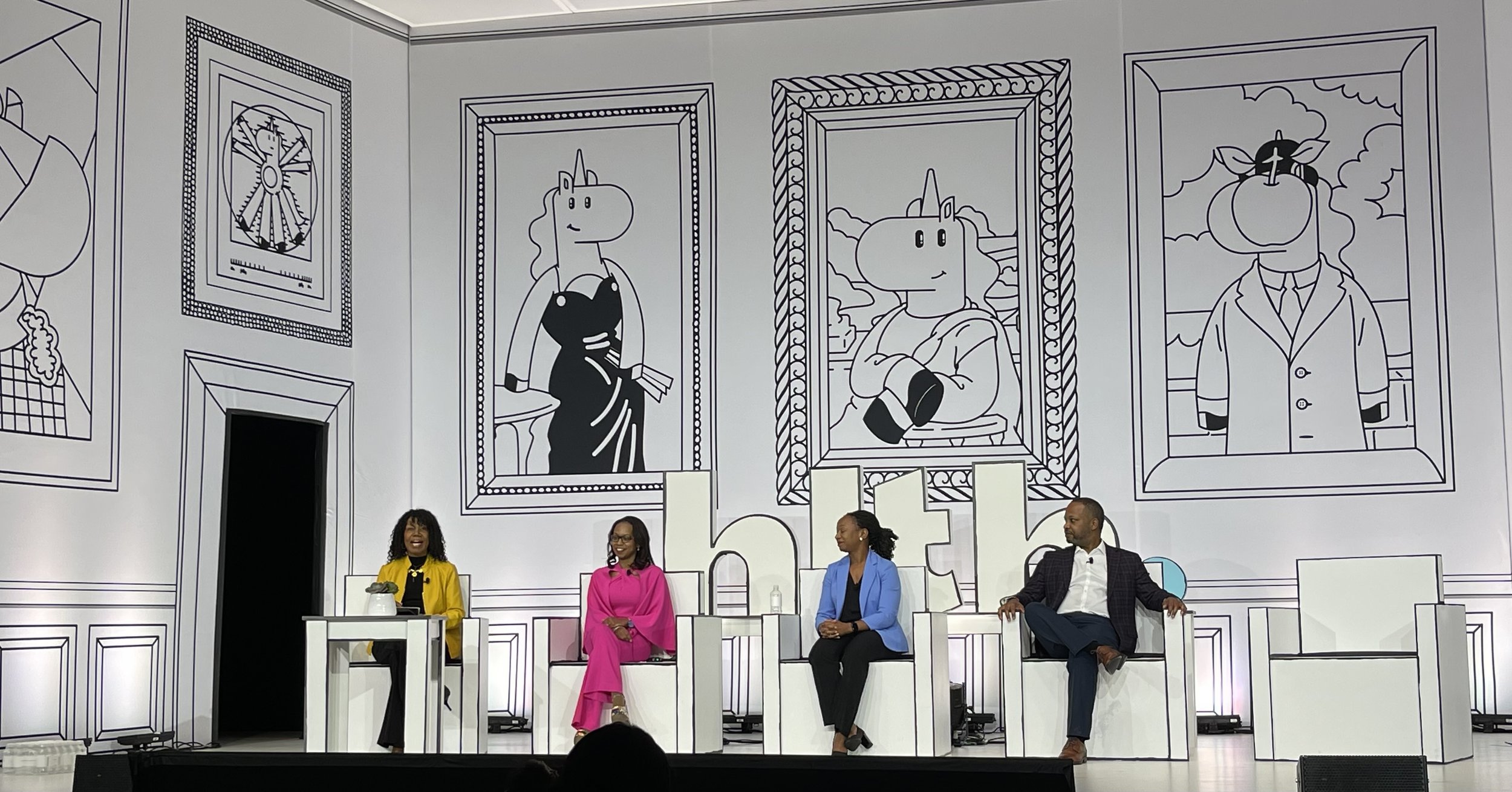
HLTH 2022
Chief Health Equity Officer Impact
The Chief Health Equity Officer Impact panel has consumed my post-HLTH thinking. I attended to hear how Deloitte’s Chief Health Equity Officer, Kulleni Gebreyes, would touch on topics related to Food + Health. I thought Kulleni brough heat and I loved it! Here’s my take on how the panel’s insights link to food.
The group agreed, “what is measured is what will improve.” The food we eat is directly linked to 4 of the 5 most costly modifiable risk factors and attributable to $600B of US health-care spending. Despite food’s role in our healthcare spend, we do not adequately measure what is in our food to link its accountability to costly outcomes. The best nutrition data available today is a patchwork of nutrient measures collected decades ago. Its data contains incomplete essential nutrient data, inconsistent testing methods, and leads to inaccurate measures on nutrition fact labels. The most ‘complete’ nutrition profiles exist for less than 8,000 ingredients and foods. It’s too much data for consumers or patients to act on and too little for AI systems.
Kulleni’s parting thought for the audience was, “If you are a taxpayer, as an investor, cost of care is eroding your margin.” Yes! This is great. Let’s follow some of the money. Deloitte recently released a study estimating the cost of health inequity in the US to be $320B. The same study measured an avoidable cost of $15B for late diagnosis and comorbidities among black adults. Two of my primary questions are what patient activation is required to eliminate this avoidable cost and where does the avoidable cost go? Deloitte is better positioned to answer patient activation. I have done some exploration of following where this cost goes.
1% of US GDP goes to dialysis, which is a process of cleaning the blood of a person whose kidneys are not working normally. The crisis of type 2 diabetes is one of our most striking Health Equity challenges as it disproportionately affects minority populations. DaVita is a dialysis company with a $6B market capitalization. Its US dialysis revenues are principally from government-based programs. In 2021, 68% of its revenues came from government-based programs. 58% Medicare and Medicare Advantage plans. Taking a broader view of the forces at play here, Berkshire Hathaway is a potentially unexpected player with a baron-sized role. From Q3 2012 - Q3 2014, Berkshire Hathaway acquired a 40% stake in DaVita, during which time the equity rose from $35 to more than $75 per share. 10 years before this acquisition, Berkshire Hathaway purchased McLane Foods from Walmart in 2003. McLane generates more than $50B of annual revenue and calls Walmart, 7-eleven and Yum! Brands some of its biggest customers. Berkshire Hathaway also owns a 9% stake in Coke, 26% of Kraft, and 100% of Dairy Queen. The reality here is one organization with a purpose of prioritizing short-term profit in a failed food system from its initial distribution to end-of-life care.
Kulleni offered to improve Health Equity, “hope is not a plan” and “purpose and profit have to be aligned”. To me, her most pointed question raised was, “Are you as an organization, trustworthy?” Deloitte is making a market push around the idea of trust - great - I hope it continues to lean into it, especially in the context of food and its impact on attributable health-care spend. How would Deloitte rate its own trustworthiness? How would data inform the way consumers might assess Deloitte’s, Berkshire Hathaway’s, DaVita’s, Walmart’s, Kraft’s, Coke’s, 7-eleven’s, Yum Brands!’s, Dairy Queen’s, CVS’, Sutter Health’s, etc. trustworthiness when it comes to their food-driven health?
Kulleni was joined on stage by Leon Clark, Sutter Health’s Chief Health Equity Officer. He called on the Healthcare industry to “touch more people, more often with information guidance and care.” At the intersection of Food + Health, there is tremendous market alignment, engagement, and training required to define the purpose of food in health and to implement and measure the impact of results. To do this, he encouraged the industry to explore “new models of care - start small and move fast”
I was inspired by this panel and am excited to be part of the short and long term health equity solution. I’m grateful to be leading in an organization that’s building the data platform the market can trust to inform food and nutrition-driven patient activations, improve health outcomes and taxpayer margins. Through partnerships our data will be used to inform actionable retail and CPG food insights through assortment comparisons, merchandise strategy, and recipe optimization. Brands will work with us to shape its food-driven talent, customer, and patient experiences through diet recommendations, shopper marketing and customer rewards, and directed spending programs. In healthcare our data will be used to map food composition and consumption to risk stratification models, expected outcomes and cost of care, and it will inform the measurement of high-resolution nutrition data’s impact in food-driven, healthcare interventions.